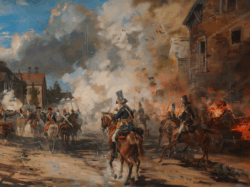
Our American Revolution series now has its own home on Substack. What began as a special project of the National Association of Scholars—hosted on Minding the Campus—has grown into a full-fledged historical series worthy of its own platform. The new Substack will serve as a dedicated archive, collecting all past essays and providing a permanent […]
Read More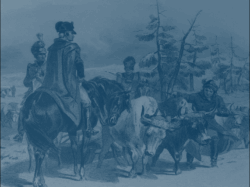
Henry Knox was only 25 years old when he convinced George Washington to trust him with retrieving nearly 60 tons of artillery from Fort Ticonderoga and getting it to Boston before the winter was out. A Boston bookseller turned self-taught artilleryman, Knox had already shown in the siege lines that he possessed the combination of […]
Read More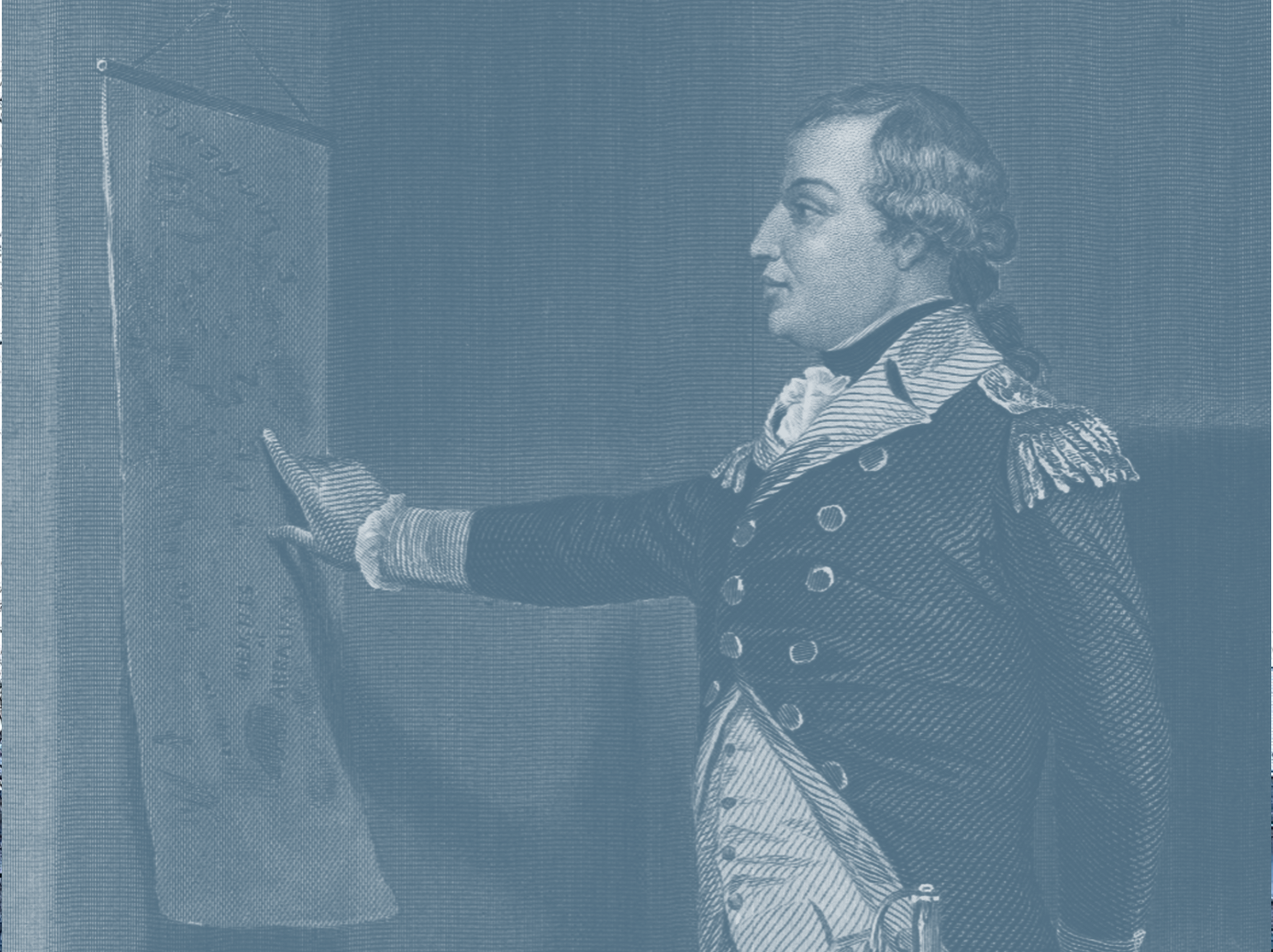
On November 13, 1775, Brigadier General Richard Montgomery led the victorious American army into the city of Montreal. He had laid the military foundation for the state of Canada to join the Union, and went off with his army toward Quebec City to finish the campaign, which did not go as planned. The Battle of […]
Read More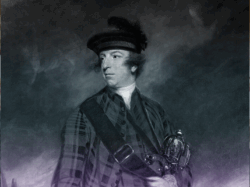
The Dunmore Declaration probably gets more attention in 2025 than it did in 1775, when John Murray, Lord Dunmore and royal governor of Virginia, proclaimed that certain slaves and indentured servants in the colony who helped the British suppress the Patriot rebellion would be granted their freedom. The offer was limited to young men who […]
Read More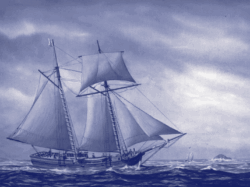
On October 13, 1775, the Second Continental Congress established the Continental Navy. How could the rebellious colonies dream of putting themselves forward as a sea power against the Royal Navy, the strongest maritime force in the world? It was another instance of the weakness that sometimes makes men audacious. Knowing that they had neither the […]
Read More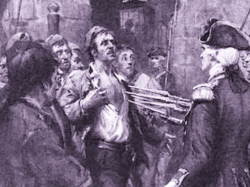
On September 25, 1775, Ethan Allen was captured by the British outside Montreal, at the Battle of Longue-Pointe. He would spend several years held captive by the British—and, once released, write up his exploits to popular acclaim in A Narrative of Ethan Allen’s Captivity (1779). Some later historians, revisiting the battle, would conclude: Damfool blowhard […]
Read More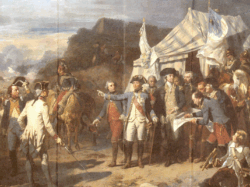
On September 1, 1775, George III refused to accept the Olive Branch Petition, Congress’s last attempt to avoid war. When John Adams heard the word back in America, he must have breathed a sigh of relief. On July 5, 1775, almost a year to the day before our Declaration of Independence, the Second Continental Congress had signed […]
Read More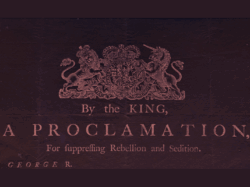
On August 23, 1775, King George III made it clear he was done with illusions about his American colonies. In his Proclamation for Suppressing Rebellion and Sedition, he stated that “many of Our Subjects in divers Parts of Our Colonies and Plantations in North America, misled by dangerous and ill-designing Men … have at length proceeded […]
Read More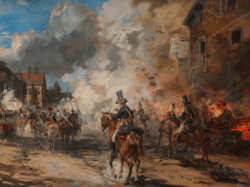
Our American Revolution series has reached the tense summer of 1775—a time when the Continental Congress was doing two things at once: sending polite petitions to King George III and loading muskets for battle. In our latest installment, we cover the Declaration of the Causes and Necessity of Taking Up Arms, which laid out why […]
Read More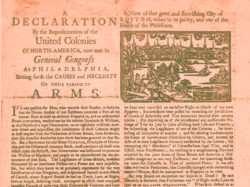
On July 6, 1775, the Continental Congress issued a declaration—not of independence, but of necessity. With British troops already marching and colonial blood already spilled, Congress laid out its reasons for taking up arms. The declaration’s title was as direct as its purpose: A Declaration of the Causes and Necessity of Taking Up Arms. It […]
Read More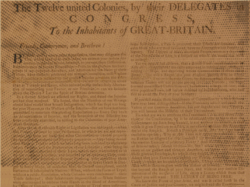
One might think that if Concord and Lexington left room for doubt that the American colonies were rebelling against Britain, the June 17 affair at Bunker Hill would have settled the question. American farmers inflicting more than a thousand casualties on Britain’s troops was a pretty strong signal of discontent. Moreover, the decision of the […]
Read More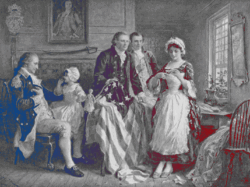
Two hundred forty-nine years ago, a determined band of colonists didn’t just declare independence—they dismantled the old world order. They rejected the centuries-old belief that power comes from bloodlines, conquest, or divine right, and proposed something audacious: that legitimacy flows from the governed, not the governor. That moment was not merely the birth of America—it […]
Read More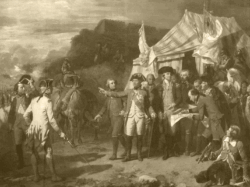
George Washington took command of the Continental Army outside Boston on July 3, 1775. He immediately spent a solid week inspecting the army, and only then wrote to the Continental Congress with his first report. The Continental Army was brave, but it could be made better. Above all, Washington needed money. I find myself already […]
Read More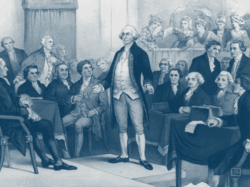
The Continental Congress appointed George Washington Commander-in-Chief of the Continental Army on June 19, 1775. Washington did not think he was qualified for the job. It’s not like any other part of the Patriot resistance was ready for war. Washington was off to lead a bunch of Massachusetts farmers who trained part-time. There were a […]
Read More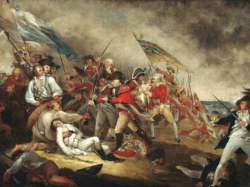
June 17, 1775, was considered for generations of Americans after the date an “ignominious defeat.” The colonists had executed a brilliant stealth maneuver. Overnight, they had erected fortifications on a hill across the Charles River from Boston and had taken the British forces under Generals Gage and Howe by surprise. A battle ensued; in the […]
Read More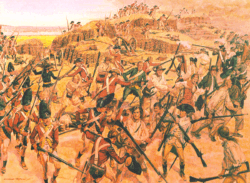
On June 14, 1775, the Second Continental Congress took its first bold step toward becoming a nation: it created a national army. Until then, each colony had relied on its own militia. But after the violent clashes at Lexington and Concord, it was clear that isolated efforts wouldn’t be enough. A unified defense would require […]
Read More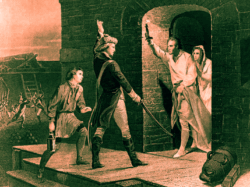
“Surrender, in the name of the Great Jehovah and the Continental Congress!” That was Ethan Allen gently explaining to the skeleton British garrison at Fort Ticonderoga that their time had come. The capture of the fort on May 10, 1775, by what amounted to a guerrilla American force was not a battle for the ages. […]
Read More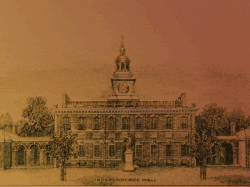
The Second Continental Congress opened on May 10, 1775. The British had already fired upon Massachusetts militia men at Lexington and Concord. Soon, Congress would make itself into a genuine, revolutionary government by taking on the traditional tasks of borrowing money, printing paper currency, and raising an army, which is what they needed the money […]
Read More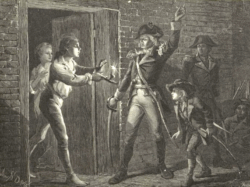
Editor’s Note: This article was originally published by the Journal of the American Revolution on November 26, 2024. With edits to match MTC’s style guidelines, it is cross-posted here with permission. The adjectives leveled Benedict Arnold’s way by contemporaries and historians leave little room for doubt. Though he inspired devotion among those serving under him, the […]
Read More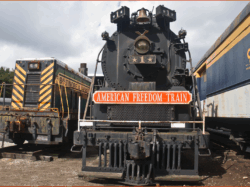
Editor’s Note: The following article was originally published by RealClear Politics on April 26, 2025. It has been edited to match MTC’s style guidelines and is crossposted here with permission. Many Americans of Generation X and older will recall the red, white, and blue American Freedom Train that was a centerpiece of America’s glorious Bicentennial celebration. But few know that the […]
Read More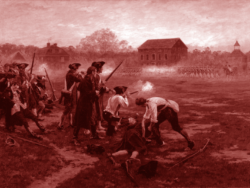
At sunrise on April 19, 1775, about 80 American townsmen in Lexington, Massachusetts, filed out of Buckman Tavern onto Lexington Green. They were commanded by French and Indian War veteran John Parker. Parker was restrained. His words were, “Stand your ground; don’t fire unless fired upon, but if they mean to have a war, let […]
Read More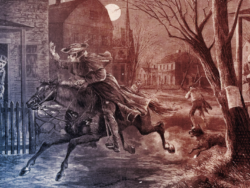
Of course, Paul Revere was a hero as he rowed and rode to alarm the countryside around Boston: “The British are coming! The British are coming!” (“The Regulars are coming out,” the staid historians tell us were his actual words.) So too were the much neglected William Dawes and Samuel Prescott. We owe our independence and our liberty to their pluck and bravery. […]
Read More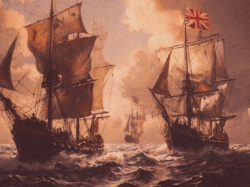
It was March 30, 1775. King George III delivers another blow to the American colonies, formally endorsing the New England Restraining Act. This Act, a direct response to the Continental Association’s 1774 boycott of British goods, was designed to strangle the rebelling colonies into submission. By royal decree, New England’s trade was restricted solely to […]
Read More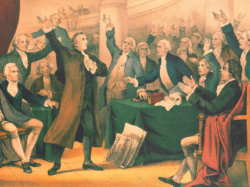
On March 23, 1775, Patrick Henry gave his “Give me liberty or give me death” speech at the Second Virginia Convention, in favor of a resolution that Virginia form a militia to oppose King George’s tyranny. Moderates at the convention were somewhat reluctant to go on record saying explicitly that George was a tyrant who must […]
Read More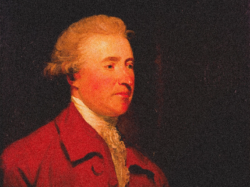
On March 22, 1775, Edmund Burke delivered one of his great Parliamentary orations on Conciliation with America. Britain and America were rushing to war, and Burke pulled out the stops to make an extraordinary peroration for peace. Britain’s current policy was worse than unjust—it was doomed to fail. Peace must be achieved, argued Burke, by […]
Read More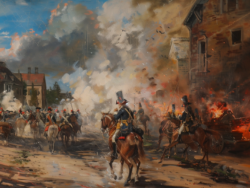
Author’s Note: This excerpt is from my weekly “Top of Mind” email, which goes out to subscribers every Thursday. This particular edition was sent on September 19, 2024. It is crossposted here in observance of Presidents Day, honoring George Washington’s pivotal role in securing American independence. For more content like this and to receive the […]
Read More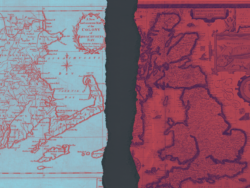
On February 9, 1775, the Parliament of Great Britain declared Massachusetts in a state of rebellion. With cause: Massachusetts’ Provincial Congress had met without royal leave and was organizing and training a military force. Massachusetts’ disobedience could no longer be ignored. Now, Britain would arm itself for war. Orders sailed to Governor Thomas Gage in […]
Read More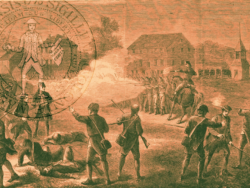
America survived those crucial months because we had self-government as well as liberty. The Second Massachusetts Provincial Congress assembled on February 1, 1775. The Second Congress would select Samuel Adams, John Adams, John Hancock, Thomas Cushing, and Robert Treat Paine to serve as delegates to the Continental Congress. It authorized a Committee of Safety—among other […]
Read More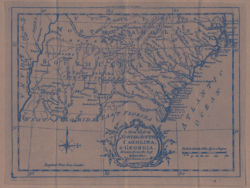
Francis Salvador, who emigrated from England to South Carolina in 1773, was the first Jew to be elected to a South Carolina legislative assembly—in 1774 and 1775, his neighbors voted him into South Carolina’s First and Second Provincial Congresses, with happy disregard for the statutes that gave Jews no right to vote or hold office. […]
Read More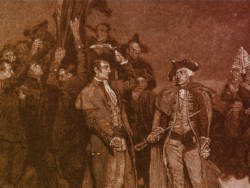
In New Hampshire, they call it “the shot not heard round the world.” On December 14, 1774, local patriots captured Fort McHenry in Portsmouth harbor. It’s probably—definitions and claims vary—the first open act of violent rebellion during the American Revolution. Patriots had been increasingly worried about control of scarce guns and powder since October when […]
Read More